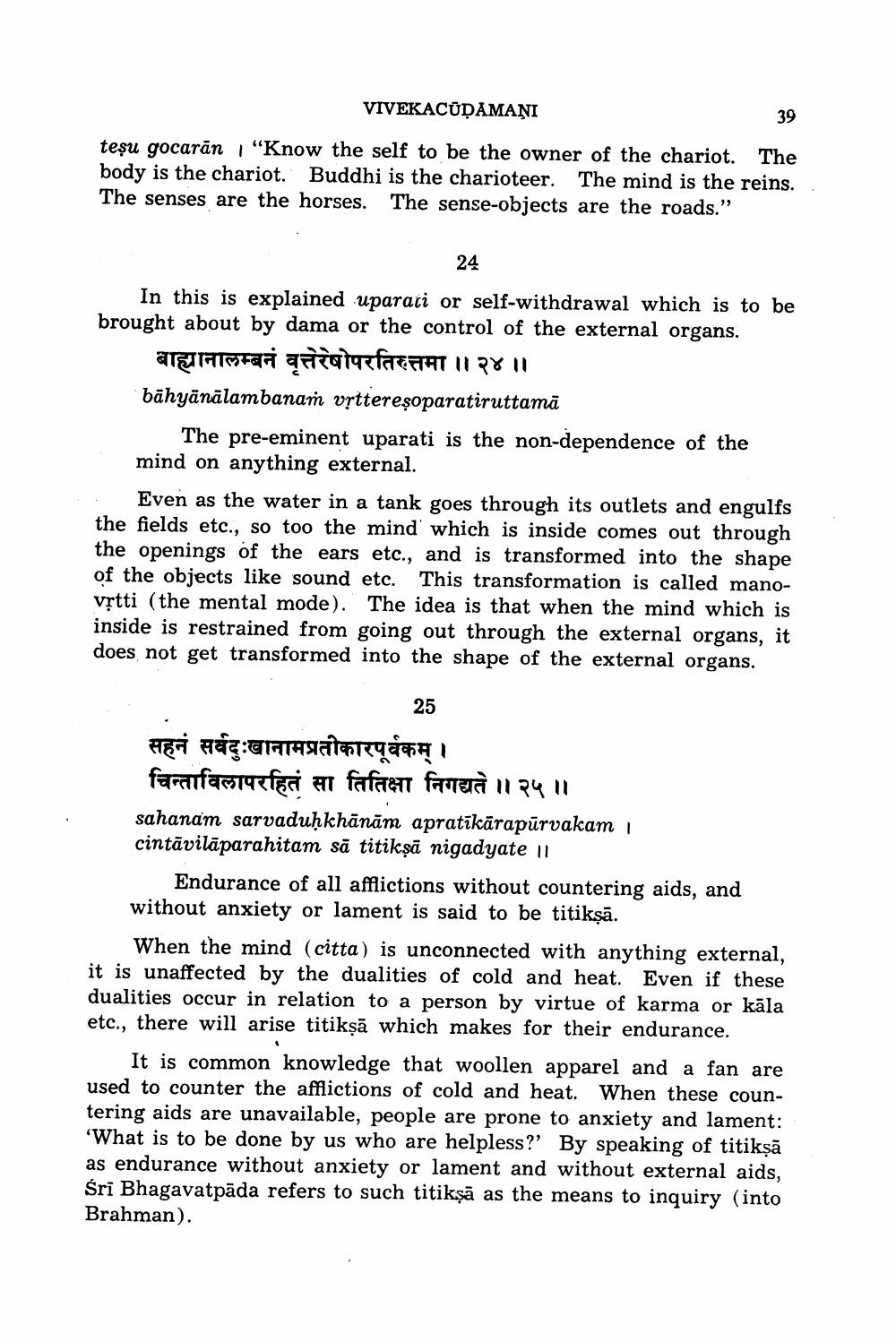________________
VIVEKACŪDAMAŅI
39 teşu gocaran , "Know the self to be the owner of the chariot. The body is the chariot. Buddhi is the charioteer. The mind is the reins. The senses are the horses. The sense-objects are the roads."
24
In this is explained uparaci or self-withdrawal which is to be brought about by dama or the control of the external organs.
बाह्यानालम्बनं वृत्तरेषोपरतिरुत्तमा ॥२४॥ bāhyānālambanam vrttereşoparatiruttamā
The pre-eminent uparati is the non-dependence of the mind on anything external.
Even as the water in a tank goes through its outlets and engulfs the fields etc., so too the mind which is inside comes out through the openings of the ears etc., and is transformed into the shape of the objects like sound etc. This transformation is called manovrtti (the mental mode). The idea is that when the mind which is inside is restrained from going out through the external organs, it does not get transformed into the shape of the external organs.
25 सहनं सर्वदुःखानामप्रतीकारपूर्वकम् । चिन्ताविलापरहितं सा तितिक्षा निगद्यते ॥२५॥ sahanam sarvaduḥkhānām apratīkārapūrvakami cintāvilāparahitam să titikşā nigadyate 11
Endurance of all afflictions without countering aids, and without anxiety or lament is said to be titiksā.
When the mind (citta) is unconnected with anything external, it is unaffected by the dualities of cold and heat. Even if these dualities occur in relation to a person by virtue of karma or kāla etc., there will arise titikṣā which makes for their endurance.
It is common knowledge that woollen apparel and a fan are used to counter the afflictions of cold and heat. When these countering aids are unavailable, people are prone to anxiety and lament: 'What is to be done by us who are helpless?' By speaking of titiksā as endurance without anxiety or lament and without external aids, Śri Bhagavatpāda refers to such titikṣā as the means to inquiry (into Brahman).




